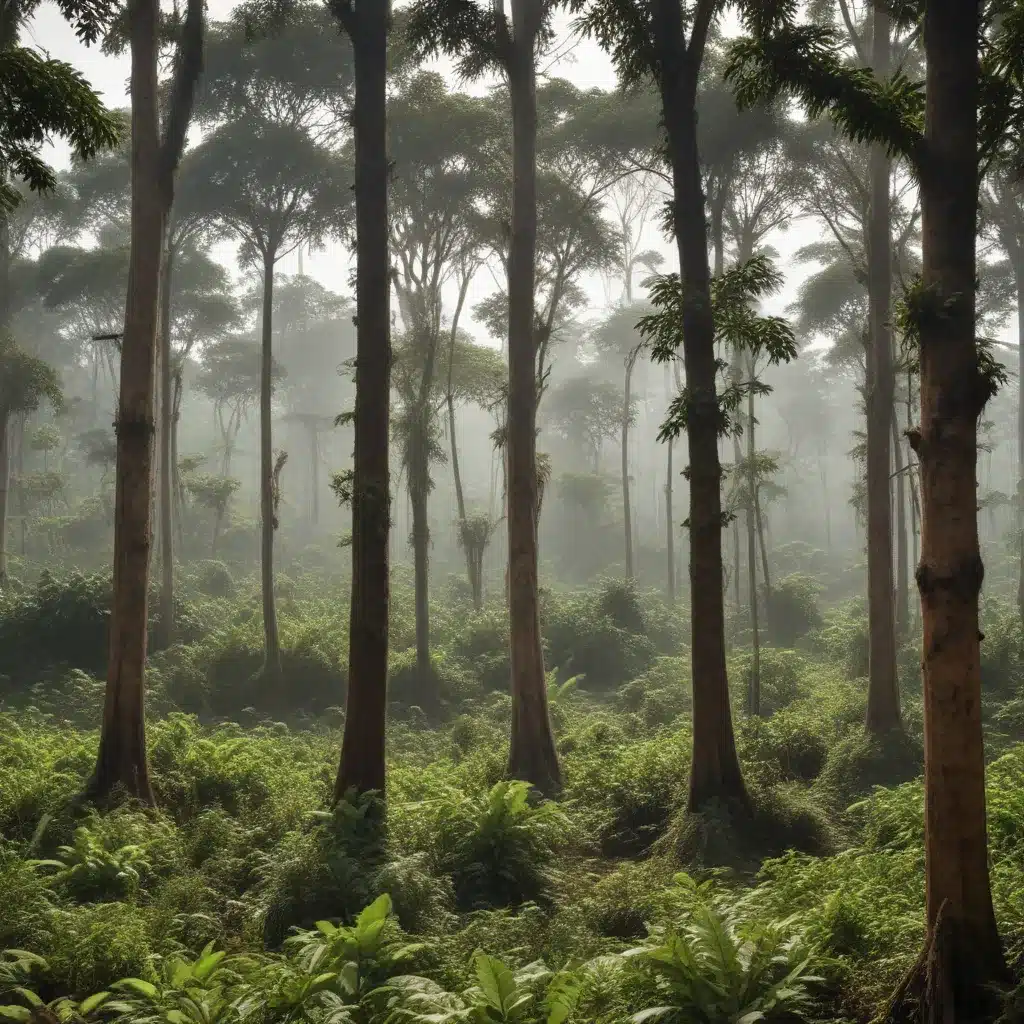
The Congo Basin harbors the second-largest contiguous tropical rainforest in the world, an ecological powerhouse that provides invaluable ecosystem services to millions across Central Africa. Yet, this precious natural resource faces mounting pressures from unsustainable development, resource extraction, and rapid urbanization. As cities in the region continue to grow, the delicate balance between urban growth and environmental preservation has emerged as a critical challenge for sustainable development.
The Congo Basin: An Ecological Treasure
Spanning over 143 million hectares across six countries, the Congo Basin is a global biodiversity hotspot, home to an extraordinary array of plant and animal species. These vast tropical rainforests not only harbor immense biological diversity, but also play a crucial role in regulating the local and global climate. The Basin’s forests absorb more carbon dioxide than the Amazon, making them a vital component of the planet’s carbon sink.
Beyond their global significance, the Congo Basin forests provide essential ecosystem services to the region’s inhabitants. They regulate water flows, prevent soil erosion, and support the livelihoods of local communities who rely on the forest for food, medicine, and fuel. The Basin’s rivers and wetlands also supply drinking water and sustain agricultural productivity in the surrounding areas.
Urbanization and the Congo Basin Forests
The rapid growth of cities in the Congo Basin region poses significant challenges to the long-term sustainability of these vital forests. Kinshasa, the capital of the Democratic Republic of Congo, is one of the world’s fastest-growing megacities, with a population expected to reach over 30 million by 2050. As the urban population expands, the demand for land, resources, and infrastructure puts increasing pressure on the surrounding forests.
Deforestation for urban expansion, agriculture, and resource extraction activities, such as logging and mining, have become major drivers of habitat loss in the Congo Basin. This not only threatens the region’s rich biodiversity, but also jeopardizes the ecosystem services that the forests provide to urban and rural communities alike.
Sustainable Urban Forestry: A Path Forward
Addressing the sustainable development challenges in the Congo Basin requires a multifaceted approach that integrates urban forestry and landscape-level conservation efforts. Urban forests, which encompass the trees, parks, and green spaces within and around cities, can play a crucial role in mitigating the environmental impacts of urbanization.
Urban forests in the Congo Basin provide a range of ecosystem services, including:
- Climate regulation: Urban trees help regulate local temperatures, reduce the urban heat island effect, and contribute to climate change mitigation.
- Water management: Trees and green spaces improve water infiltration, reduce runoff, and filter pollutants, thereby enhancing water quality and availability.
- Air purification: Urban vegetation can remove airborne particulates and improve overall air quality, which is particularly important in rapidly growing cities.
- Biodiversity conservation: Urban forests can serve as refuges for various plant and animal species, helping to maintain regional biodiversity.
- Recreation and well-being: Urban green spaces offer opportunities for recreation, relaxation, and community engagement, which can have significant mental and physical health benefits.
Sustainable management of these urban forests is crucial to ensuring their long-term viability and the continued provision of these essential ecosystem services. This requires a holistic approach that integrates community engagement, policy and governance, and scientific research.
Sustainable Development Strategies for Congo Basin Urban Forests
Environmental Sustainability
Promoting environmental sustainability in Congo Basin urban forests involves several key strategies:
- Habitat restoration and conservation: Investing in the restoration and protection of degraded urban forests and greenspaces can help mitigate habitat loss and preserve biodiversity.
- Sustainable urban planning: Incorporating nature-based solutions, such as green infrastructure and urban greening, into urban development plans can help balance the needs of a growing population with the preservation of critical ecological assets.
- Climate change adaptation: Strategically planting and managing urban trees and vegetation can help cities adapt to the impacts of climate change, such as increased temperatures and extreme weather events.
Socioeconomic Sustainability
Ensuring the socioeconomic sustainability of Congo Basin urban forests requires addressing the needs and perspectives of local communities:
- Community engagement: Involving local residents in the planning, management, and stewardship of urban forests can foster a sense of ownership and responsibility, leading to more sustainable outcomes.
- Livelihood diversification: Developing sustainable forest-based enterprises, such as eco-tourism and non-timber forest product harvesting, can provide alternative income sources and reduce dependence on unsustainable resource extraction.
- Capacity building: Investing in the training and education of urban forestry professionals, policymakers, and community members can enhance the institutional capacity to manage and protect urban forests effectively.
Institutional Sustainability
Underpinning these environmental and socioeconomic strategies is the need for institutional sustainability, which involves:
- Policy and governance: Establishing robust policies, regulations, and governance frameworks that prioritize the conservation and sustainable management of urban forests.
- Integrated land-use planning: Coordinating urban development, rural land use, and natural resource management at the landscape level to ensure the long-term viability of the Congo Basin’s ecological systems.
- Sustainable financing: Securing adequate and reliable funding sources, from both public and private sectors, to support the implementation of urban forestry and conservation initiatives.
By adopting a holistic, multi-stakeholder approach to sustainable development, the Congo Basin’s urban forests can be safeguarded for the benefit of present and future generations. As a leading provider of TriCounty Tree Care‘s comprehensive tree care services, we are committed to supporting this vital effort and helping communities in the region build a more sustainable future.


